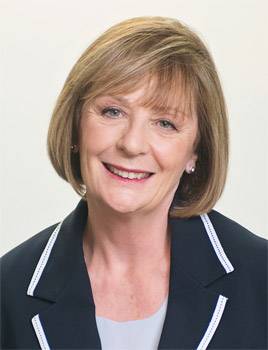Julie Heraghty mEYE World Photographic Competition Interview

Julie Heraghty mEYE World Photographic Competition Interview
Macular Disease Foundation Australia is calling for entries into the fifth annual mEYE World Photographic Competition and is asking all Australians to submit a photograph that captures the theme: See My World.
A high profile judging panel will decide this years' winners, including media identity and Patron of Macular Disease Foundation Australia Ita Buttrose, internationally recognised photographer Rex Dupain and one of Australia's longest serving news photographers, Alan Pryke.
Ita Buttrose, who has judged the competition for four years, said 'Photography captures the world around us like no other medium. It gives a unique insight into the world of the photographer and I am looking forward to seeing entries which are personal and creative interpretations of the entrant's world."
Macular disease is the leading cause of blindness and severe vision loss in Australia and includes diabetic eye disease and macular degeneration. These diseases take away the sight of Australians but if detected early sight can be saved.
'This competition reminds us to value our vision and the importance of having an eye test and macula check to protect it," said Macular Disease Foundation Australia Chief Executive Officer, Julie Heraghty. 'There is so much beauty in the world around us and I encourage all Australians to embrace the theme See My World by entering a photo which highlights the importance of sight in their daily life."
It's easy to enter. All you need to do is submit a photograph online that represents the theme of See My World, plus a brief description. There is over $13,000 worth of prizes to be won.
The competition runs until 8 September 2015.
For more information and to enter, visit www.meyephotocomp.com.au
Photo: Dr Kerry Boytell, of Mosman NSW, won the Grand Finalist and Healthcare Category prize for the mEYE World Photographic Exhibition 2014 with an awe-inspiring photo of a snow leopard in the wild.
'All big cats in their environment are difficult to see, but when I saw this magnificent snow leopard appearing on a ledge it was a sight to behold. I think it was just as amazed at seeing me, as I was seeing it. Our sight is precious, and being able to see nature in its glory is indeed wonderful." Dr Kerry Boytell, Mosman NSW.
Macular Disease Foundation Australia is committed to reducing the incidence and impact of macular disease in Australia through education and awareness programs, research, provision of support services and representing the best interests of the macular disease community. The Foundation is a national charity providing information, guidance and support on prevention, early detection, treatment and rehabilitation. The Foundation is the voice of the macular disease community, building healthy communities through the development of effective public policy, a sound knowledge base and strong relationships and partnerships.
The Foundation's work encompasses macular degeneration, diabetic retinopathy, retinal vein occlusions and a range of other macular diseases.
To find out more visit: www.mdfoundation.com.au
Interview with Julie Heraghty, CEO at Macular Disease Foundation Australia
Question: What is the mEYE World Photographic Competition?
Julie Heraghty: The mEYE World Photographic Competition is a fun way to raise awareness of macular disease, the leading cause of blindness and severe vision loss in Australia. Macular disease affects everyone - both younger and older Australians. Our eye health messages support prevention and early detection of disease and timely treatment. Our aim is to save sight so every Australian can see their world.
It's so easy. Simply enter your photo online with a short description of how it captures this year's theme -See My World'. There are over $13,000 worth of prizes to be won including a fantastic Nikon D610 camera and lens.
Question: What do you hope to achieve from the mEYE World Photographic Competition?
Julie Heraghty: Sight is precious and we can never take it for granted. I want the competition to raise awareness of these eye diseases and the importance of eye health, especially of having an eye test and macula check and adopting eye friendly diet and lifestyle measures. I want everyone to spread the word and use all means possible to share this competition with friends and family to save sight.
 Question: Can you explain the theme, See My World?
Question: Can you explain the theme, See My World? Julie Heraghty: The theme -See My World' is about highlighting the importance of our vision by capturing an aspect of your world through the lens of a camera. How often does someone show you their photos and you say 'what a great photo!" What you are really saying is 'hey, you captured an image in your world and shared it so I can see the world through your eyes."
The theme enables you to share your special moments, to illustrate how precious sight is. There is so much beauty in the world and we look forward to seeing entrant's individual interpretations and special sights from their lives.
Question: What is Macular Disease?
Julie Heraghty: Macular disease is the leading cause of blindness and severe vision loss in Australia and includes diabetic eye disease and macular degeneration. It impacts our central vision which is responsible for our ability to drive, see colours clearly and recognise faces.
Julie Heraghty: You can have macular disease without even knowing. This is why it is so important to have an eye test and macula check with an optometrist or ophthalmologist.
The most important message is to never ignore any sudden changes in your vision. If you notice changes, see your eye care professional immediately. Symptoms can include:
Difficulty in reading or doing any other activity which requires fine vision
Distortion where straight lines appear wavy or bent
Distinguishing faces becomes a problem
Dark patches or empty spaces appearing in the centre of your vision
The need for increased illumination, sensitivity to glare, decreased night vision and poor colour sensitivity may also indicate that there is something wrong.
Question: Is there treatment for Macular Disease?
Julie Heraghty: Highly effective treatment is available for the wet form of macular degeneration. Diet and lifestyle measures are also important in prevention and disease progression. Many other macular diseases (eg diabetic retinopathy, vein occlusions) have a range of treatments depending on the stage of disease. In all cases, early detection is critical to saving sight.
Question: How can we detect Macular Disease early?
Julie Heraghty: These days eye testing is quick and easy and can be carried out by an optometrist. Technology allows the eye care professional to examine the retina at the back of the eye where the macula is located and can accurately identify macular disease, even in the early stages.
Question: What are your aims for the Macular Disease Foundation Australia in 2015?
Julie Heraghty: In 2015 the Foundation continues to work tirelessly to fulfil our mission to reduce the incidence and impact of macular disease in Australia by:
Raising awareness of all macular diseases
Being the voice of the macular disease community and advocating for the needs of the community including access and affordability of treatment and low vision aids
Providing information, guidance support and understanding via our freecall Helpline, face to face education sessions, free publications and comprehensive website
Continuing to fund research into macular disease. Already the Foundation has committed $1.5 million to research, and this year will commit up to a further $1.3 million. This is possible thanks to the generous donations of the Australian community to the Macular Disease Foundation Australia Research Grants Program.
Free information kits on macular degeneration and diabetic eye disease are available by contacting Macular Disease Foundation Australia on 1800 111 709.
Those at risk of and those living with macular disease (along with their family, friends and carers) should register with the Foundation to receive ongoing information including newsletters and research updates.
Interview by Brooke Hunter
MORE





